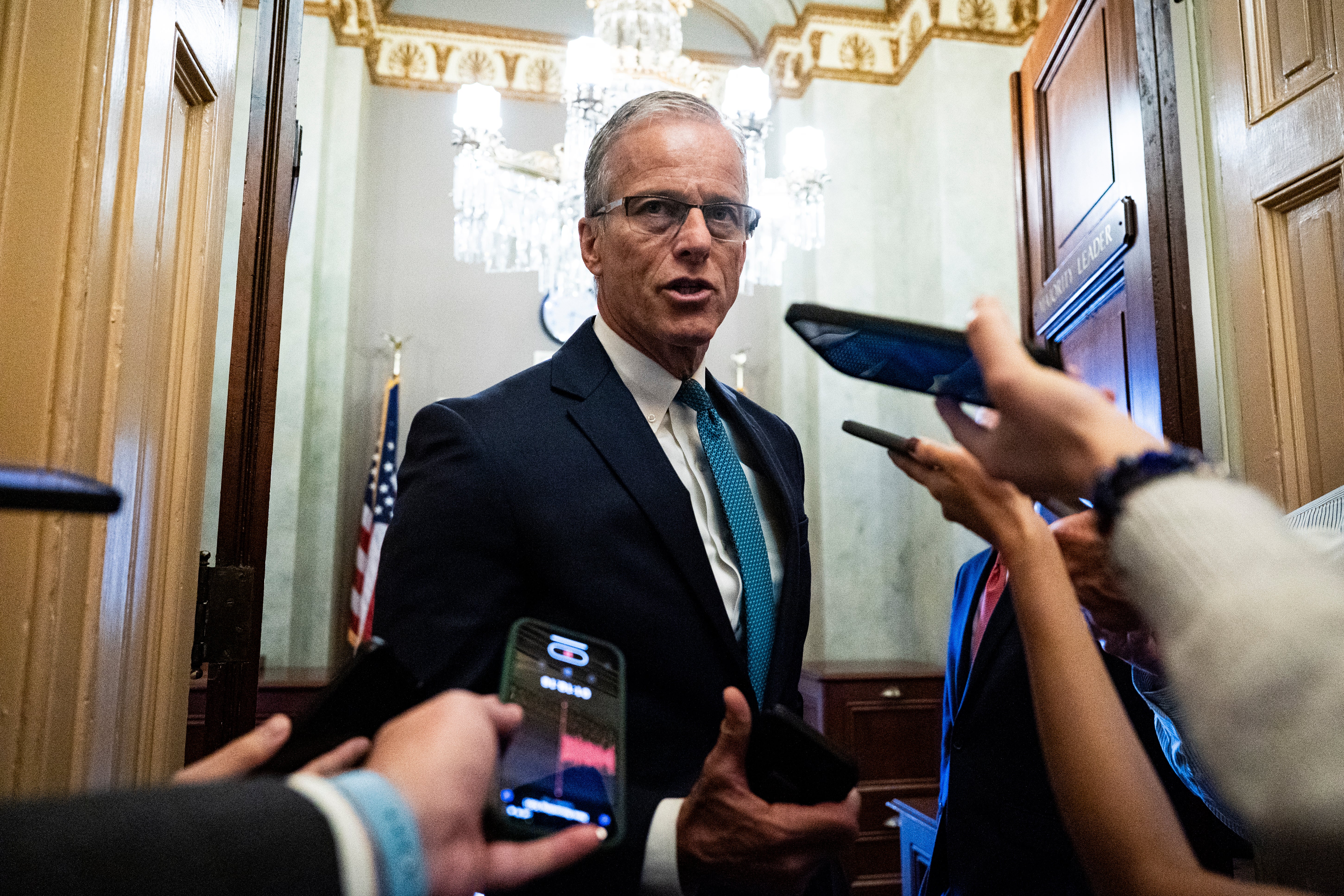Senate Republicans finally passed their version of President Donald Trump’s “One Big, Beautiful Bill,” Tuesday afternoon despite sharp criticism of the legislation from some within the president’s party who held out for changes that dragged negotiations to a marathon two-day session.
The legislation passed after Vice President JD Vance cast the deciding vote on a 50-50 tie and it now gets sent back to the House of Representatives for reconsideration with the new amendments.
Trump and Republicans had prioritized the bill’s passage, given that it includes an extension of the 2017 tax cuts Trump signed in his first term as president as well as increased spending for immigration enforcement, oil exploration and the U.S. military.
The final vote came after a marathon series of amendments known as a “vote-a-rama.” But it did not come easy, with Republican Sens. Rand Paul of Kentucky and Thom Tillis of North Carolina voting against the bill.
Paul, a libertarian, criticized the way that the bill increases both the deficit and the debt limit, while Tillis criticized its Medicaid cuts. Shortly after Tillis voted against the motion to proceed, and drew a strong threat of political retribution from Trump, he announced on Sunday he would not seek re-election in one of the most contentious senate races in the country.

Senate Republicans engaged in an aggressive campaign to win over Sen. Lisa Murkowski, the moderate Republican from Alaska.
Murkowski, who voted to convict Trump in 2021 for his actions on January 6, received a series of exemptions for her home state of Alaska in exchange for her vote. During one point, Thune, Senate Finance Committee Chairman Mike Crapo and her fellow Alaskan Sen. Dan Sullivan cornered her in the back of the Senate chamber for an aggressive lobbying session.
Republicans avoided a Democratic filibuster by passing the bill via a process known as budget reconciliation. The process allows the Senate to pass legislation by a simple majority rather than the normal 60 votes as long as it relates to federal spending and it follows reconciliation’s strict rules policed by the Senate Parliamentarian.
No part of the bill was as contentious as its changes to Medicaid. Specifically, the bill caps the amount of money that states can tax medical providers like hospitals and nursing homes.
“So I think the states that are having trouble are the ones that were really abusing the provider tax,” Sen. John Hoeven of North Dakota told The Independent. The American Hospital Association warned this could cause rural hospitals to close and Sen. Josh Hawley criticized the provider tax.
The Senate Parliamentarian later said the provider tax cap did not comply with the rules of reconciliation, which led to Republicans to revise the language and delay the implementation of the provider tax, which the Parliamentarian later allowed. That led to Hawley voting for the bill.
In addition to the provider tax provision, it also requires that able-bodied adults with dependent children to either work, participate in an education program or community service for 80 hours to receive Medicaid benefits.
The nonpartisan Congressional Budget Office found that if the bill passed, as many as 11.8 million people could lose their Medicaid benefits, making it the steepest cut to Medicaid in history.
In the same token, Sen. Susan Collins proposed an amendment to increase the legislation’s fund for rural hospitals from $25 billion to $50 billion, which also failed.
The bill signals a major political victory for Trump, who has signed few pieces of legislation since his return. But polling shows the legislation is incredibly unpopular, but Republicans seem unconcerned.
“You pass it and let them live with the blessings of the good policy,” Republican Sen. Kevin Cramer of North Dakota told The Independent.
Sen. Bill Cassidy faces re-election next year in Louisiana and said he would sell the legislation as well.
“Helps them with child tax credits, helps them with school choice, it helps them with lots of things,” Cassidy, the chairman of the Health, Education, Labor and Pensions Committee, told The Independent. “Prevents the largest tax increase. It should be a pretty easy sell.”
The House, which passed its initial version of the bill 215-214 on May 22, will now consider the Senate-approved version under pressure from Trump to get it on his desk so he can sign it into law by July 4.
But it is not out of the woods yet. Numerous Republicans have objected to parts of the bill and say it does not do enough to curb the defict. Show they change the bill, it is very likely the Senate might have to do another vote-a-rama.

 4 hours ago
2
4 hours ago
2









